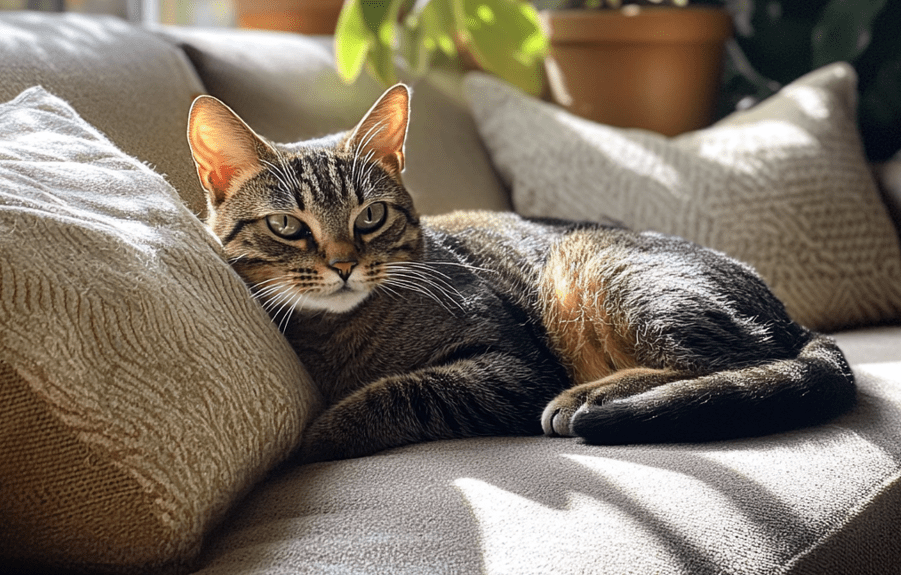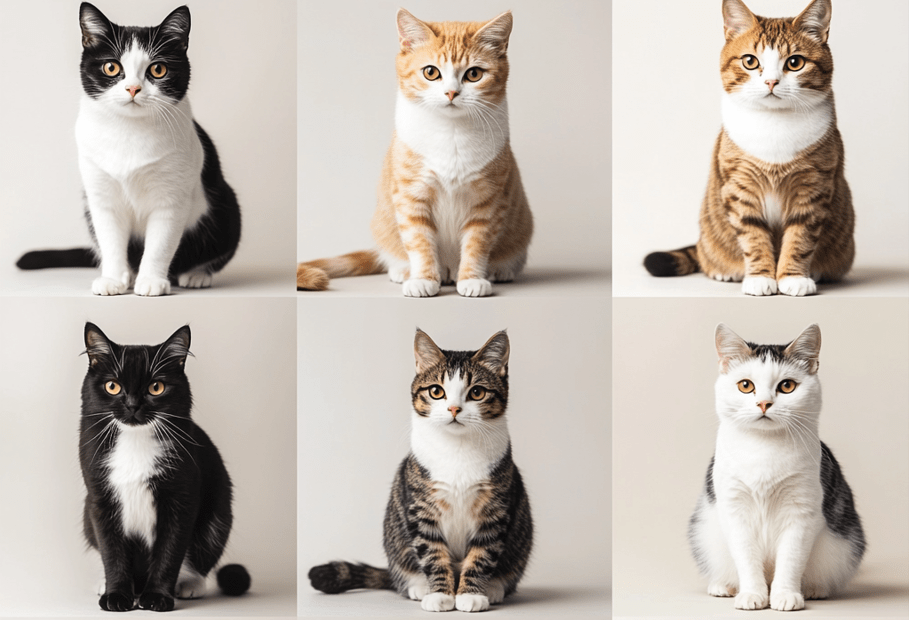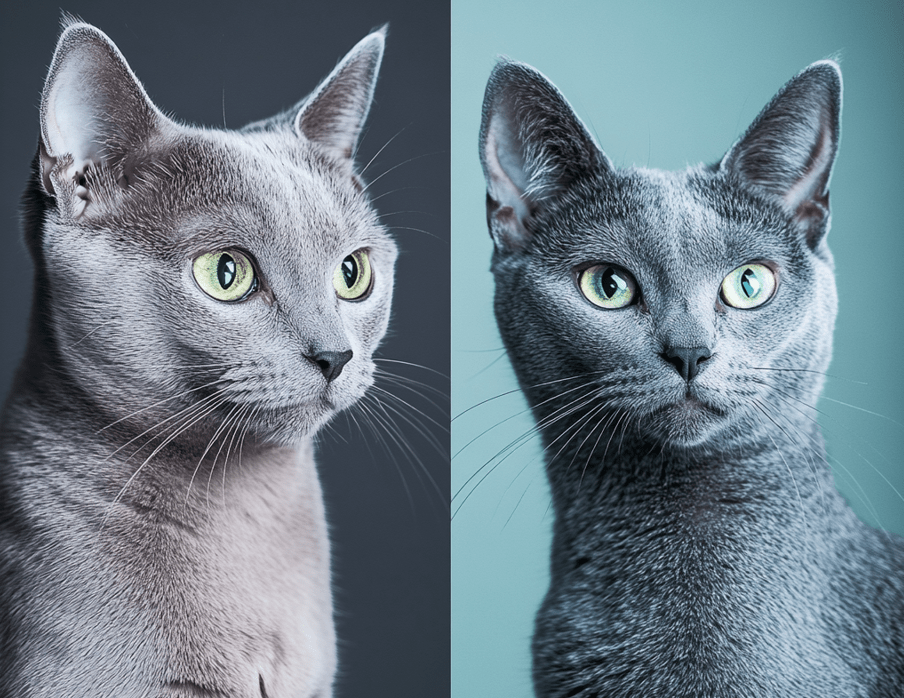
Domestic Shorthair cats with sensitive stomachs can face challenges like vomiting, diarrhea, or food refusal, causing concern for their owners. Domestic Shorthairs, beloved for their diverse genetics and playful personalities, may experience digestive issues due to diet, stress, or underlying health conditions. Managing Domestic Shorthair sensitive stomachs requires a thoughtful approach to diet, environment, and veterinary care. This comprehensive guide provides actionable strategies, expert insights, and practical tips to help your cat thrive, ensuring their digestive health and overall well-being. By addressing these issues, you can improve your cat’s quality of life and strengthen your bond.
Understanding Sensitive Stomachs in Domestic Shorthairs
A sensitive stomach in Domestic Shorthairs refers to a digestive system that reacts adversely to certain foods, stressors, or environmental factors. Symptoms include frequent vomiting, loose stools, bloating, or a reluctance to eat. While Domestic Shorthairs are not inherently more prone to digestive issues than other breeds, their prevalence as household pets makes sensitive stomachs a common concern. Identifying the root cause—whether dietary, medical, or behavioral—is key to effective management.
Why Focus on Domestic Shorthairs?
Domestic Shorthairs, with their mixed genetic backgrounds, exhibit a wide range of health profiles. Some may inherit sensitivities to specific ingredients, while others develop issues due to lifestyle factors. Understanding your cat’s unique needs allows for tailored care to alleviate digestive discomfort.
Common Causes of Sensitive Stomachs
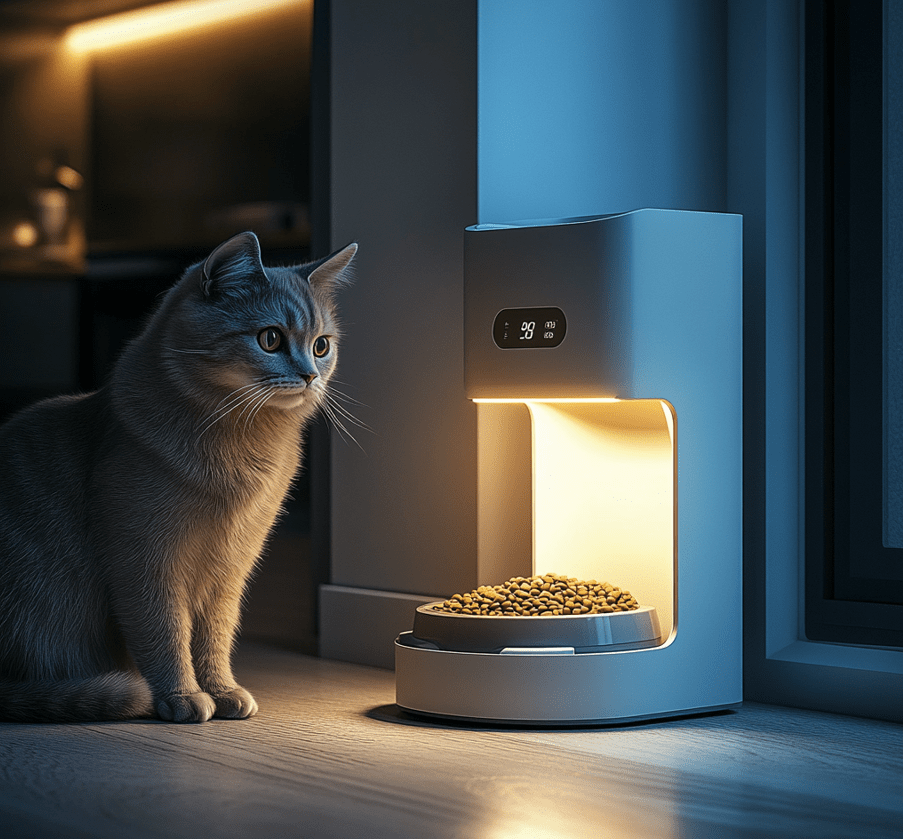
Several factors can contribute to sensitive stomachs in Domestic Shorthairs. Recognizing these causes helps you address the issue effectively:
Dietary Sensitivities: Ingredients like grains, dairy, or certain proteins (e.g., fish or chicken) can trigger digestive upset in sensitive cats.
Food Intolerances or Allergies: Unlike allergies, which often cause skin issues, food intolerances primarily affect the digestive system, leading to vomiting or diarrhea.
Sudden Diet Changes: Abruptly switching foods can disrupt your cat’s gut flora, causing temporary digestive issues.
Stress or Anxiety: Changes in routine, new pets, or loud environments can lead to stress-induced digestive problems.
Underlying Medical Conditions: Conditions like inflammatory bowel disease (IBD), pancreatitis, or parasites (e.g., giardia) can cause chronic digestive issues.
Poor-Quality Diets: Low-quality foods with fillers or artificial additives may be harder for sensitive cats to digest.
Pro Tip: Keep a symptom journal, noting when issues occur, what your cat ate, and any environmental changes. This can help your veterinarian pinpoint the cause.
Symptoms of Sensitive Stomachs
Recognizing the signs of a sensitive stomach in your Domestic Shorthair is crucial for timely intervention. Common symptoms include:
Frequent Vomiting: Occasional vomiting (e.g., hairballs) is normal, but frequent or persistent vomiting signals a problem.
Diarrhea or Soft Stools: Loose, watery, or inconsistent stools may indicate dietary or medical issues.
Bloating or Gas: Excessive gas or a distended abdomen can suggest digestive discomfort.
Reduced Appetite: Cats with sensitive stomachs may eat less or refuse food due to nausea or pain.
Lethargy: Digestive issues can make your cat less active or withdrawn.
Weight Loss: Chronic digestive problems may lead to unintended weight loss, even if appetite remains normal.
When to Seek Veterinary Care: If symptoms persist for more than 24-48 hours, or if you notice blood in vomit/stool, severe lethargy, or refusal to eat, contact your veterinarian immediately.
Diagnosing Sensitive Stomachs
Veterinarians use a combination of history, physical exams, and diagnostic tests to identify the cause of sensitive stomachs in Domestic Shorthairs:
Dietary History: Your vet will ask about your cat’s food, treats, and any recent diet changes.
Physical Exam: Checking for signs of dehydration, abdominal pain, or weight loss.
Lab Tests: Fecal exams can detect parasites, while blood tests assess organ function and rule out conditions like hyperthyroidism or pancreatitis.
Imaging: X-rays or ultrasounds may be used to check for blockages, inflammation, or other abnormalities.
Food Trials: A controlled elimination diet can identify specific food sensitivities or allergies.
Strategies for Managing Sensitive Stomachs
Managing Domestic Shorthair sensitive stomachs involves a multi-faceted approach, including dietary adjustments, environmental changes, and veterinary guidance. Below are the most effective strategies to help your cat.
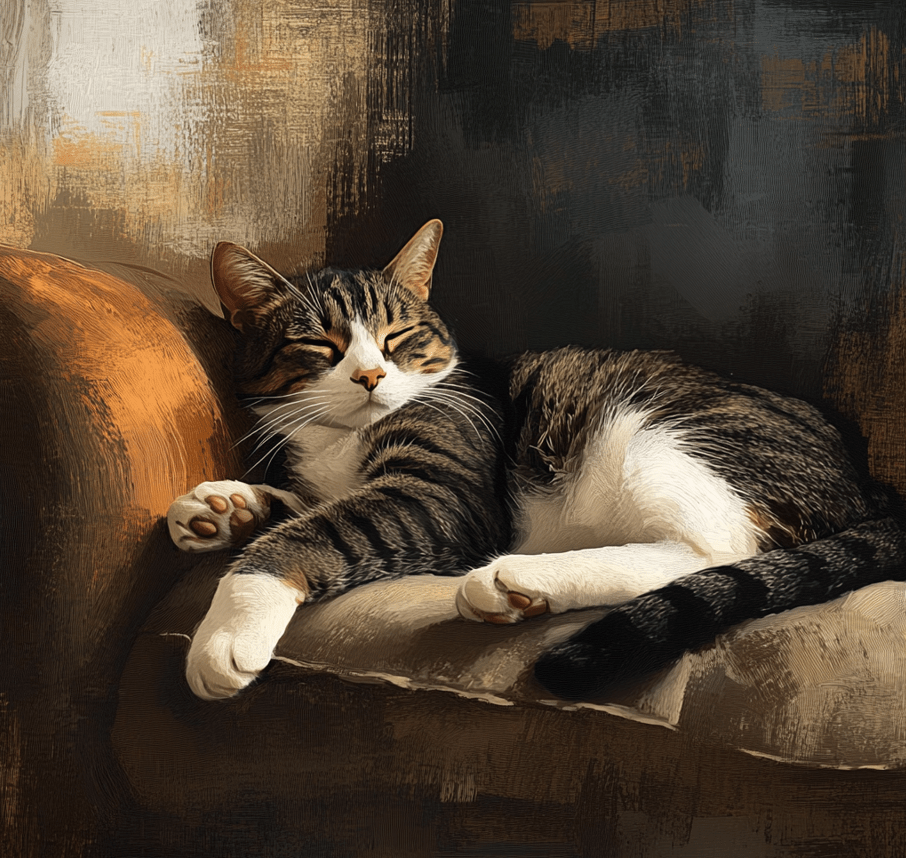
1. Choose a High-Quality, Digestible Diet
Diet is the cornerstone of managing sensitive stomachs. Opt for foods that are easy to digest and formulated for sensitive digestion:
Limited Ingredient Diets (LID): These contain fewer ingredients to reduce the risk of triggering sensitivities. Common proteins include novel options like duck or venison.
Hydrolyzed Protein Diets: These break proteins into smaller molecules, making them less likely to cause reactions. Available by prescription.
Grain-Free or Low-Grain Formulas: Some cats tolerate grain-free diets better, though consult your vet, as grains are not inherently harmful.
High-Moisture Foods: Wet food supports hydration and is often easier to digest than dry kibble.
Pro Tip: Transition to a new food gradually over 7-10 days, mixing increasing amounts of the new food with the old to avoid digestive upset.
2. Implement a Food Trial
If food sensitivities are suspected, your veterinarian may recommend an elimination diet:
-
Choose a novel protein (e.g., rabbit) or hydrolyzed diet your cat hasn’t eaten before.
-
Feed only this diet for 8-12 weeks, avoiding treats, table scraps, or flavored medications.
-
Monitor symptoms and reintroduce potential allergens one at a time to identify triggers.
Note: Food trials require strict adherence. Even small amounts of other foods can skew results.
3. Feed Smaller, More Frequent Meals
Large meals can overwhelm a sensitive stomach. Instead:
-
Divide your cat’s daily food into 3-4 smaller portions.
-
Use an automatic feeder to maintain a consistent schedule, reducing hunger-driven overeating.
This approach eases digestion and minimizes vomiting or bloating.
4. Support Gut Health with Probiotics
Probiotics introduce beneficial bacteria to your cat’s gut, improving digestion and reducing inflammation:
-
Choose a vet-recommended probiotic formulated for cats, such as FortiFlora or Proviable.
-
Administer as directed, often mixed with food.
-
Be patient, as probiotics may take weeks to show results.
5. Minimize Stress
Stress can exacerbate digestive issues in Domestic Shorthairs. Create a calm environment with these tips:
Provide Safe Spaces: Offer hiding spots, cat trees, or quiet areas where your cat can retreat.
Maintain Routine: Feed, play, and clean litter boxes at consistent times to reduce anxiety.
Use Pheromone Diffusers: Products like Feliway mimic calming pheromones, helping to soothe stressed cats.
Introduce Changes Gradually: New pets, furniture, or schedules should be introduced slowly to avoid upsetting your cat.
6. Ensure Proper Hydration
Adequate water intake supports digestion and prevents constipation, which can worsen sensitive stomachs:
Use a Cat Fountain: Running water encourages drinking, mimicking natural streams.
Offer Wet Food: Its high moisture content boosts hydration.
Place Multiple Water Bowls: Position bowls in quiet, accessible areas away from litter boxes.
Pro Tip: Add a splash of low-sodium chicken broth to water to entice picky drinkers, ensuring it’s safe for cats.
7. Work Closely with Your Veterinarian
Chronic or severe sensitive stomach issues may require medical intervention:
Medications: Anti-nausea drugs (e.g., Cerenia), antacids, or steroids may be prescribed for conditions like IBD.
Parasite Treatment: Dewormers or antiparasitic medications can address issues caused by parasites.
Diagnostic Follow-Ups: Regular vet visits ensure treatments are effective and adjust plans as needed.
Pro Tip: Bring your symptom journal to vet appointments to provide a clear picture of your cat’s condition.
8. Avoid Common Triggers
Certain foods and habits can worsen sensitive stomachs. Avoid:
Human Foods: Dairy, fatty meats, or spicy foods are hard to digest and can cause upset.
Low-Quality Treats: Opt for single-ingredient or vet-approved treats.
Rapid Diet Changes: Always transition foods slowly to prevent digestive shock.
Long-Term Management and Prevention
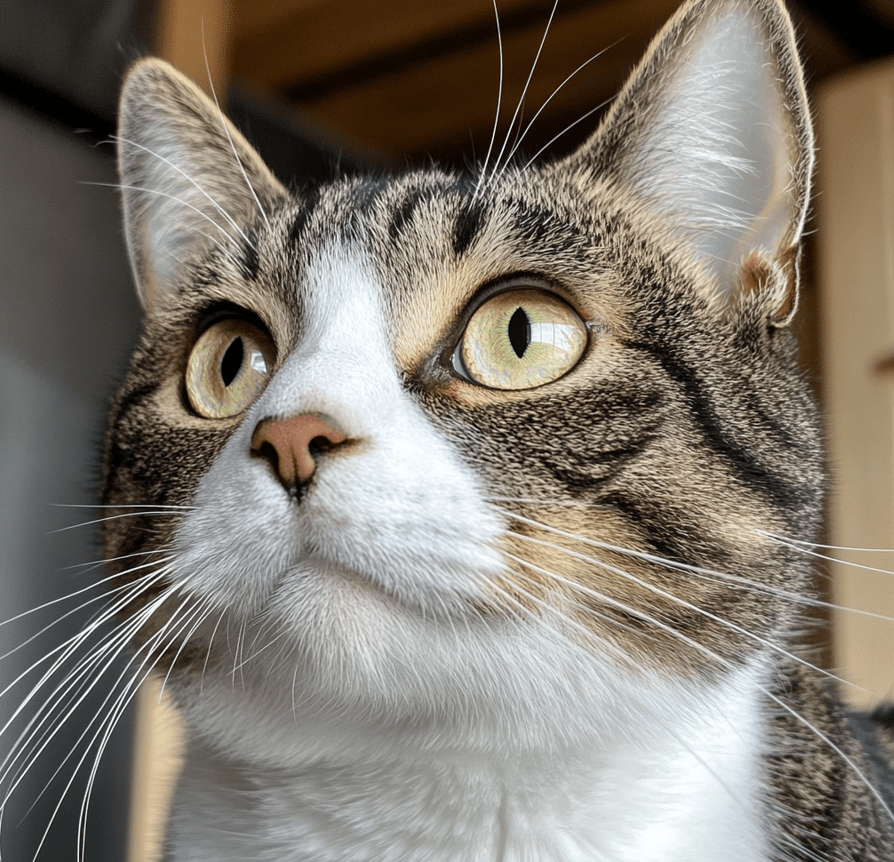
Managing Domestic Shorthair sensitive stomachs is an ongoing process. These long-term strategies help maintain digestive health:
Regular Veterinary Checkups: Annual or biannual exams catch issues early, especially in senior cats or those with chronic conditions.
Monitor Weight: Obesity can exacerbate digestive issues. Work with your vet to maintain a healthy weight through diet and exercise.
Enrichment: Provide toys, scratching posts, and playtime to reduce stress and keep your cat active.
Track Symptoms: Continue logging symptoms to identify patterns or new triggers, adjusting care as needed.
Special Considerations for Domestic Shorthairs
Domestic Shorthairs’ diverse genetics mean their digestive sensitivities vary. Kittens may outgrow mild issues, while senior cats may develop new sensitivities due to age-related changes. Rescue cats with unknown histories may require extra diagnostic work to identify triggers. Tailor your approach based on your cat’s age, health history, and lifestyle, consulting your vet for personalized advice.
Common Mistakes to Avoid
When managing sensitive stomachs, steer clear of these pitfalls:
Assuming It’s Normal: Frequent vomiting or diarrhea is not typical and should be investigated.
Self-Diagnosing: Avoid guessing at food allergies or treatments without veterinary guidance.
Inconsistent Diets: Stick to a consistent diet during food trials or treatment to accurately assess results.
Ignoring Stress: Overlooking environmental stressors can worsen symptoms, even with the right diet.
Conclusion
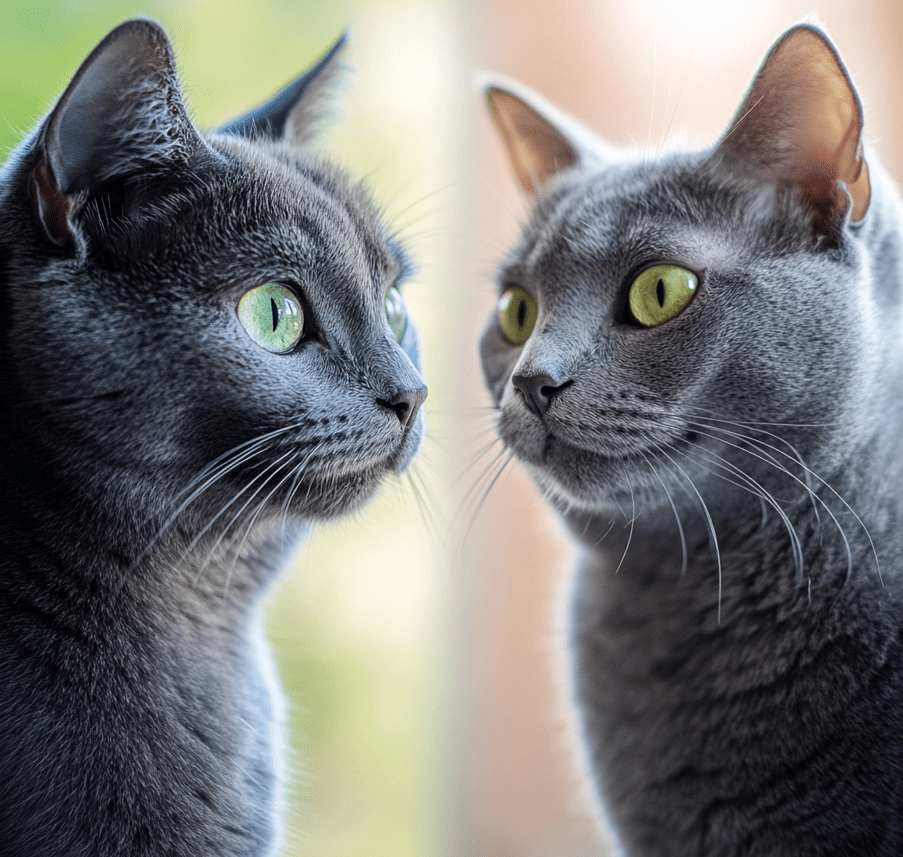
Managing Domestic Shorthair cats with sensitive stomachs requires a combination of dietary care, stress reduction, and veterinary support. By choosing high-quality, digestible foods, implementing food trials, and creating a calm environment, you can alleviate your cat’s digestive discomfort and promote long-term health. Regular vet checkups, probiotics, and careful monitoring further ensure your Domestic Shorthair thrives. This guide aims to be the ultimate resource for cat owners, offering practical, vet-informed solutions to help your feline friend live comfortably and happily.
With patience and the right strategies, you can transform mealtimes into a positive experience for your Domestic Shorthair, strengthening your bond and ensuring their well-being for years to come.


